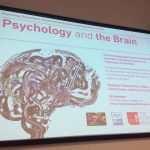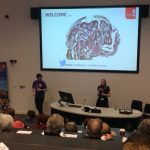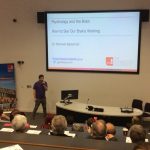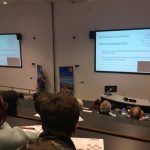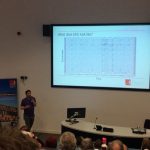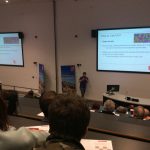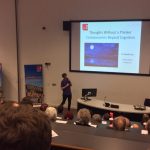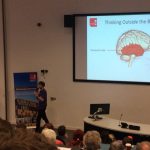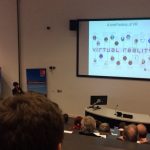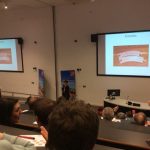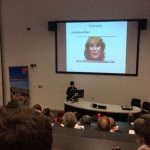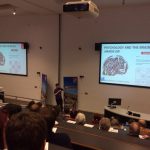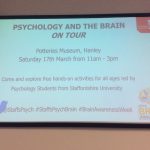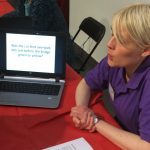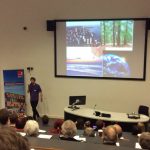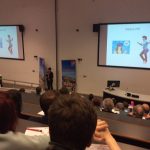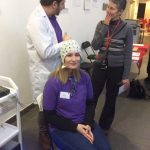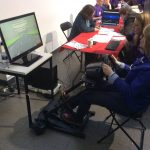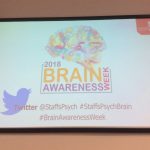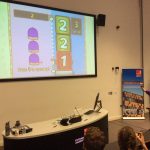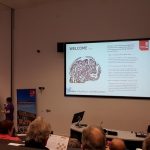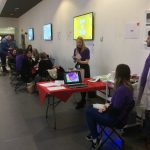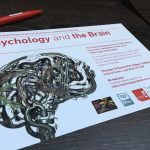By Dr Sarah Rose, Lecturer in Psychology, Staffordshire University.
Brain Awareness week is a worldwide celebration of the brain, encouraging people of all ages to appreciate the importance of what our brains do for us. As well as a very successful Psychology and the Brain event held at the University, a smaller event was also held at The Potteries Museum and Art Gallery in Stoke-on-Trent. This was led by myself and five of our Psychology and Child Development Students. The aim of the event was to provide some interactive activities for families to take part in, to learn together about the marvels of the brain.
The students found the experience of running the event and engaging with the public to be rewarding and had fun making their own ‘brain hats’ (see above for a picture).
“It was great to incorporate the information learned from my Psychology and Child Development course into various activities. Also, being able to teach children about what the brain does and how it works was a truly worthwhile experience.” (Ingrid, Level 5 student)
“Demonstrating to local children at the Psychology and the Brain event what is involved in psychology using child friendly engaging activities was so much fun! As a Psychology and Child Development student, being given the volunteering opportunity has enabled me to demonstrate skills learnt on the course and helped towards building the perfect foundation for working with young people in my future psychology career.” (Rebecca, Level 6 student)
“I found it very helpful how we were able to use the knowledge we already had but adapt this to suit children. For example, changing the “normal” Stroop task for one that children would find engaging and easier to comprehend. I think applying AND adapting knowledge enhances learning even more, as you really get to grips with the theory underpinning it.’ (Zoe, Level 6 student)
In addition to the students enjoying the event, I also had a great time! It was great to work with this group of students outside of the classroom. Seeing them share the knowledge that they have developed during their degree with families was very rewarding. They worked really well together and demonstrated that they could put what they were learning into practice as they explained the marvels of the brain to young children and their families.
Dr Sarah Rose is planning to organise similar events in the future if you are interested in finding out more about these please do get in touch (click here for Sarah’s contact details).
The Department of Psychology at Staffordshire University offers a range of undergraduate and postgraduate degrees in Psychology at the University’s £30 million Science Centre in Stoke-on-Trent.
Interested in a Psychology degree? Come to an Open Day – for further details and to book your place at an open day please click here.
For more information about the Psychology degrees on offer at Staffordshire University please visit the below pages:
- BSc (Hons) Forensic Psychology
- BSc (Hons) Psychology
- BSc (Hons) Psychology & Child Development
- BSc (Hons) Psychology & Counselling
- BSc (Hons) Psychology & Criminology
- Postgraduate Courses in Psychology



